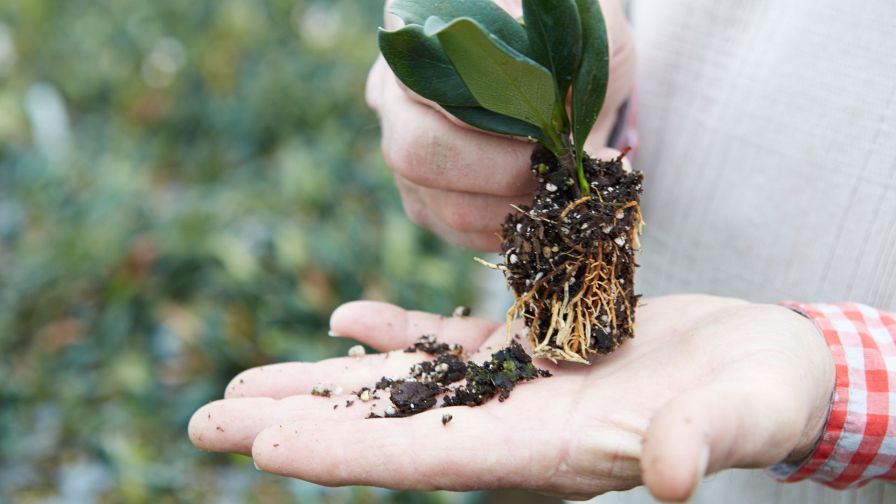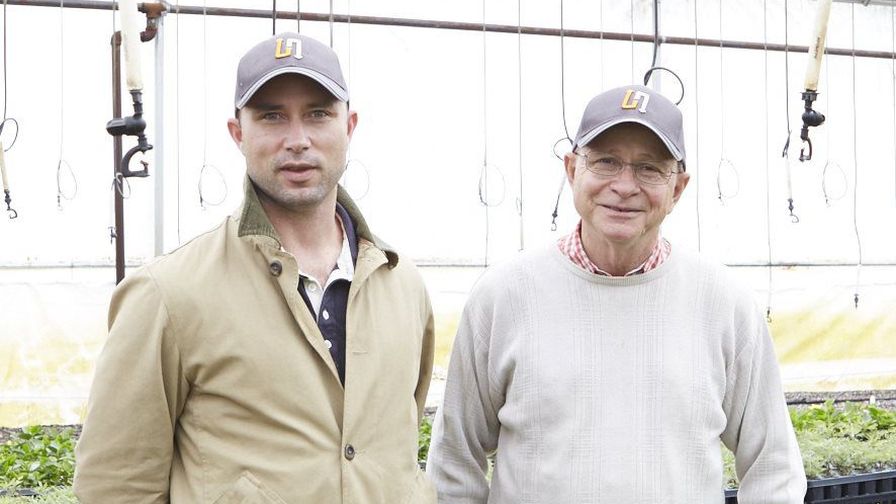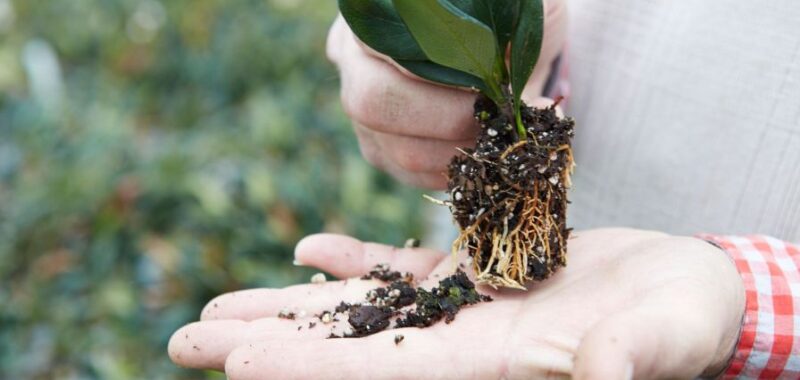
Discovering and delivering plants | J. Berry Nursery
As gardeners throughout the country add Black Diamond Crape Myrtles in landscapes or Hollywood Hibiscus to containers this summer, the company behind those notable brands quietly boosts the bottom line of community organizations in its backyard. J. Berry Nursery founder Jim Berry believes that supporting his neighbors by donating plants increases the funding for some important not-for-profits in the community–but also promotes horticulture to the public.
From organizations that trial woody and herbaceous plants in the face of climate change to community groups that raise revenue through sales of donated plants to garden plantings designed for the public’s pleasure, many community organizations benefit from J. Berry Nursery and its plants.
“SFA Gardens thrives because of nurseries like J. Berry Nursery,” says Dr. David Creech, Director of SFA Gardens. By trialing plants donated by J. Berry Nursery, horticulturists determine which plants thrive in the extreme heat and drought resulting from the climate crisis. “The last four years of climate change has been an epic torture test for all of us,” says Creech, “and the gardens revealed those plants that thrive, survive, or die. It’s been a data bonanza. Our goal—and the nursery industry’s goal—is to introduce and promote climate-resilient plants for the 21st-century Texas landscape. Organizations like J. Berry Nursery help immensely by donating ornamentals for trial.”
Donated plants are also used for fundraising through two annual plant sales, which produce income to support the SFA Garden’s mission, the evaluation program, and the maintenance of the collections. The SFA Garden Spring 2024 plant sale grossed more than $100,000, with J. Berry Nursery plants contributing significantly toward the money raised.
Along with the donations to SFA Gardens, J. Berry Nursery also supports the Wood County Arboretum and Botanical Gardens. For more than 17 years, J. Berry Nursery has donated plants to support the arboretum’s spring and fall plant sales, as the organization receives no city, county, state, or federal government funding. Money raised from the sale of donated plants, as well as paid memberships, supports the upkeep of the gardens and the historic Stinson House.
“Jim Berry has been a steadfast supporter of the Wood County Arboretum and Botanical Gardens since the gardens were established in 2007,” says Lin Grado, Vice President and Garden Manager of Friends of the Arboretum. “I’ve heard tales of him personally driving back to his nursery to get more plants for one of our first plant sales because he felt we needed more.”
Managed by an all-volunteer staff, the not-for-profit organization relies on plant sales to support its mission—as well as to attract new members, which helps boost revenue. “The plants are always gorgeous,” says Grado, “and we can market them as ‘locally grown, Texas tough.’ They’re our highest profit sales. Indirectly, the plant donations also increase our annual paid memberships, since we hold members-only sales of the donated plants. People have a chance to buy J. Berry plants, some of which are an early preview of selections not yet locally available.”

Jonathan and Jim Berry | J. Berry Nursery
Along with the plant sales, donated plants help enhance the gardens. “Following the death of our founder, Pam Riley, we ordered some plants to create a memorial garden,” says Grado. “Jim insisted the plants were his donation, saying he was glad to honor Pam with his contribution.” In addition to the memorial garden, donated J. Berry Nursery plants helped the gardens establish a native grass display, as well as displays of shrubs and perennials that educate the public about how to use them in sunny or shady borders. “I can’t think of a bed that doesn’t have plants that were donated by Jim,” says Grado. “The Arboretum wouldn’t be nearly as horticulturally diverse or exciting without the numerous donations made by J. Berry Nursery.”
While arboretums and public gardens provide a natural outlet for plant donations, J. Berry Nursery also provides plants for fundraising in other community organizations. “Children’s Miracle Network at CHRISTUS Trinity Mother Frances Health System relies on community support to provide exceptional pediatric health care,” says Robin Rowan, the organization’s Executive Director. “Our partnership with J. Berry Nursery has helped make the miracles of healthcare possible for the children we serve throughout northeast Texas, and we are grateful.” Donations of plants throughout the community, including the National Night Out event where plants were given away to community members, tie J. Berry Nursery tightly to its neighbors.
“All of the great plants that we donate come out of our research and development program,” says Berry. “We trial many perennials and shrubs each year, and the trials consist of only a few of each variety. By donating these plants to local not-for-profits and public gardens, often to be sold to generate much-needed revenue for the organizations, the public gets to purchase great plants not readily available elsewhere—and the organizations raise much-needed funds to continue their work. We’re delighted to help our community organizations, while also promoting horticulture.”

